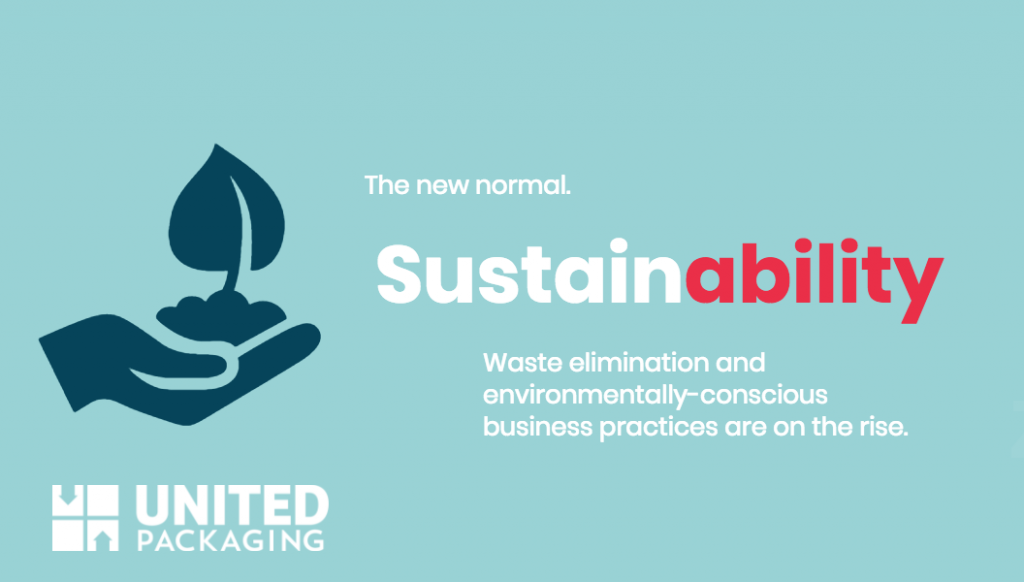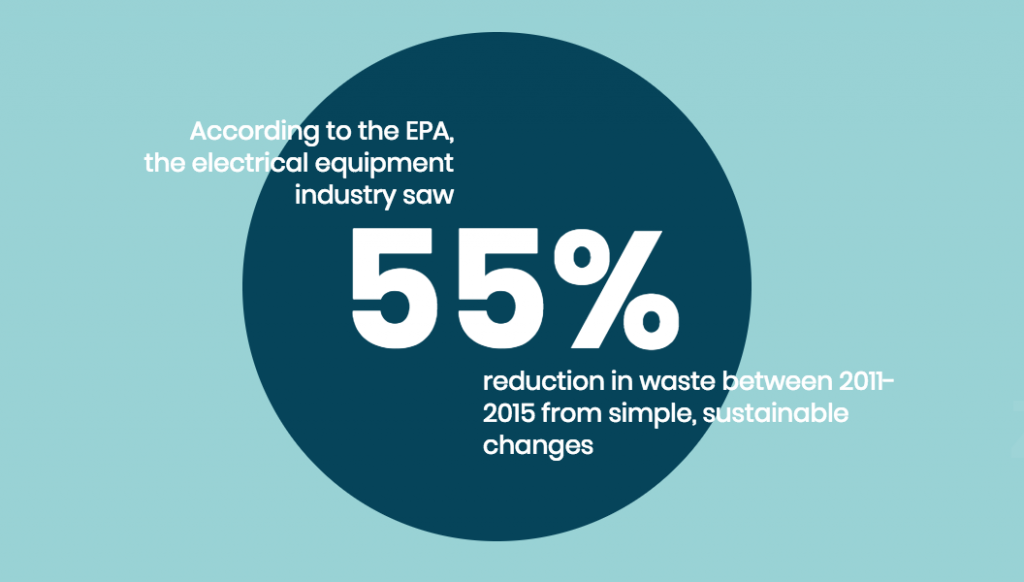Business sustainability may have once been a trending topic, but it is now the new normal.

This is exciting and important for the status of business everywhere, and the world as we know it. Sounds dramatic, doesn’t it? But sustainable business practices actually have a direct effect on air pollution and waste on this earth. The smallest changes can make huge differences, no matter the size of the company. We are committed to continue sustainable practices within our industry, and encourage our partners, clients, and vendors to do the same.
The industry as a whole has come a long way in the last few years. For example, as presented by the EPA, the advent of Source Reduction Activities in electrical equipment saw a 55% decrease in waste managed between 2011-2015. Industries across the board have adopted waste-eliminating processes and other sustainable practices in their warehouses, facilities, buildings, and supply chains, to name a few. Many now employ experts in supply chain and Lean Six Sigma to better understand their obstacles, and improve productivity.

In 2017, more global companies have announced their sustainability status, including giants like Walmart. Individually, these companies manufacture some of the most mass produced goods in the world, so you can imagine how much waste is created naturally by this output. One global business alone can yield thousands of tons of waste in one year. For the sake of money and time lost each year by a global company, let alone the carbon footprint on our ecosystems from wasted product, sustainability is at the forefront of their success and advancement.
According to an article published by Virgin.com, the following global companies are sustainability “standouts” in the new, green era.
- IKEA: With improvements like over 700,000 solar panels throughout their stores, and sourcing cotton only from farms that meet Better Cotton standards, this furniture giant is one of the major players in modern business sustainability.
- Unilever: Unilever has sustainability built into its values as a business. Their program, called the Sustainable Living Plan, “sets targets for sourcing, supply chain and production on everything from energy and water use to treatment of suppliers and communities where they operate.” (Virgin.com) Other global companies like Gap have followed suit and practice a similar community effort with their Mill Sustainability Program.
- Panasonic: In their own, unique effort to reduce waste, Panasonic moved one of their headquarter locations so that many of their employees no longer need to drive to work, thus eliminating unnecessary automobile emissions on a daily basis. They are also known for using renewable resources and energy as another way to extend their sustainability.
- Allergan: This Botox manufacturer is one of the only cosmetic pharma companies to go green. Through their supply chain, they’ve been utilizing renewable resources and in 2016, won the EnergySTAR Award for the 5th time.
- Seventh Generation: You’ve seen their products in a grocery store near you, as a disrupt-er to the cleaning supplies industry. In one of the biggest offending industries for waste and harmful chemicals, Seventh Generation has changed the way these goods are produced and disposed. It has caused other brands like Clorox and Lysol to remove certain harmful ingredients from their products.
- Patagonia: Between using recyclable materials in their clothing, advocating for the environment, and developing a program for repairing and not replacing old or worn out clothing, Patagonia is firing on all cylinders on the sustainability front.
Read about all 10 global companies on Virgin.com.
Business owners, take note. It is just as important that small, family-run businesses turn to sustainable methods as it is for their large trailblazers. Sustainability is here to stay — as it should be — and is the future of business and the world on which we live.